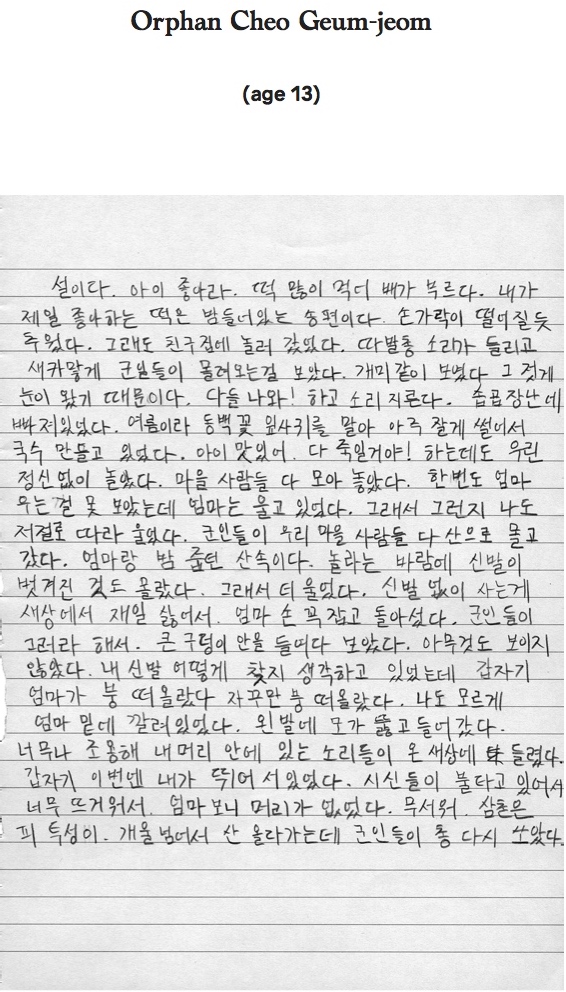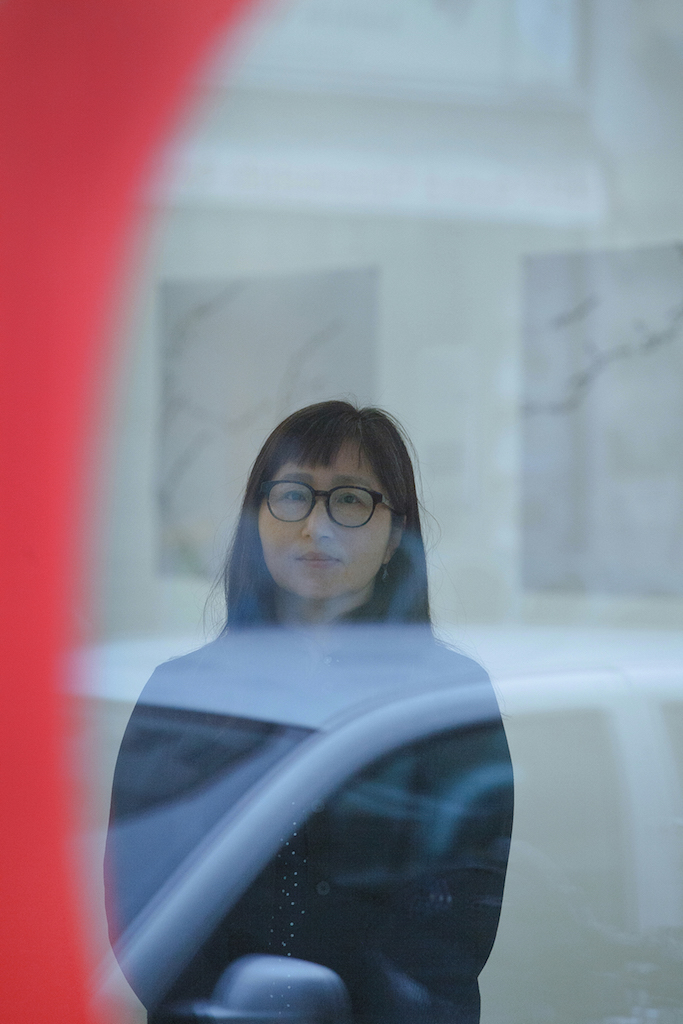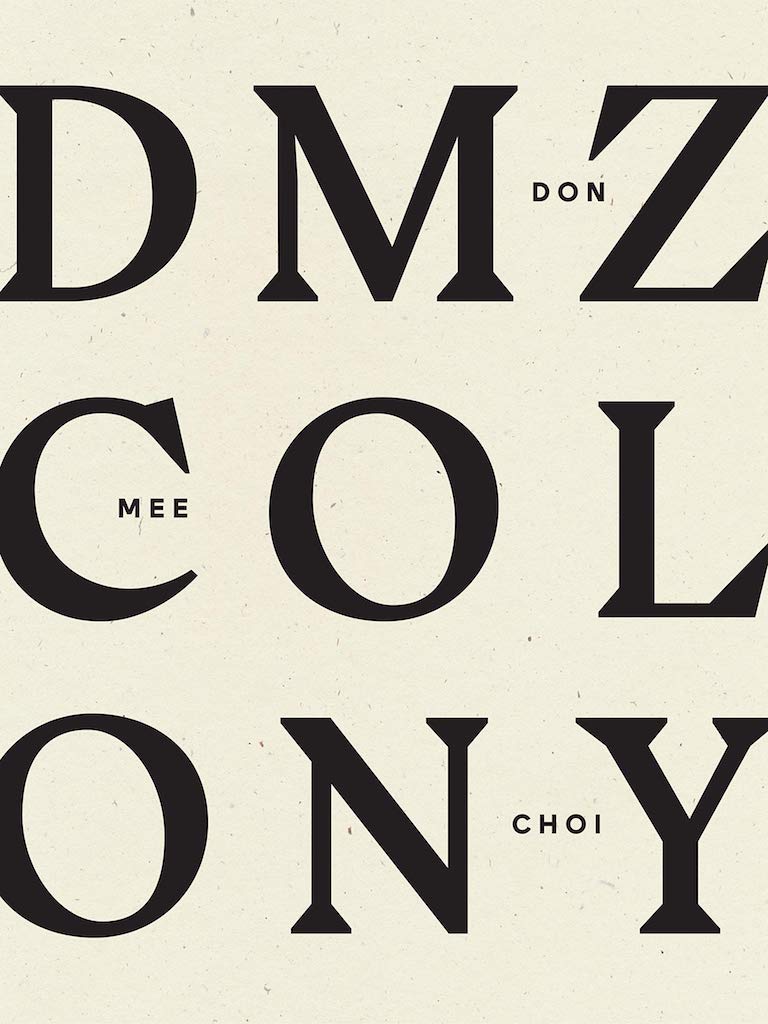
New Year’s Day! I was stuffed from eating too many rice cakes. My favorites are the ones with chestnuts in the middle. It was so cold that my fingers were ready to snap off, but I still went over to my friend’s house to play. Then I heard a machine gun and saw a swarm of soldiers. They looked like ants against the snow. Come out! they shouted. We will kill you all! But my friend and I kept on playing. We pretended it was summer and made green noodles by rolling up camellia leaves and slicing them ever so thinly. Now all the village people were rounded up. My mom was crying, and I had never seen her cry before. Maybe that’s why I started crying too. The soldiers made us go up the hill into the forest where my mom and I picked chestnuts. I was in such a panic that I didn’t realize my shoes had come off. I cried even more. I hate being shoeless more than anything in the world. I held onto my mom’s hand and turned around because the soldiers told us to. I looked down at the pit. I couldn’t see anything but dirt. I thought to myself, How will I ever find my shoes again? Then suddenly my mom floated up in the air again and again. Somehow I was already lying beneath her. Somehow a bullet pierced through my left foot. Somehow it was so quiet that I could hear everything inside my head. Somehow I jumped up. All the corpses were burning. Somehow my mom was headless. My uncle, covered in blood, acted crazy. Somehow somehow. We ran across the creek and up the mountain. The soldiers saw us and started shooting again.





